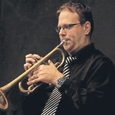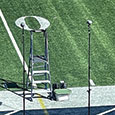Private lessons are a core component of any successful middle or high school music program. Often these lessons are taught by local professionals or college music students, but many school districts are located in rural areas with few, if any local professionals or college students to be found. Other districts in low-income areas likely have financial constraints that prevent families from affording lessons. A parent’s financial concerns or lack of private instructors should never stand in the way of a student receiving private instruction. One solution is to create a mentoring program. The learning and social collaborations between two students in a music mentor program can be invaluable to a music program and create lasting impressions for both mentors and their students.
Purpose
A music mentor program consists of the top students of a high school music program giving private instrument instruction to middle school music students as well as high school freshmen and sophomores. Students are often eager to participate because they enjoy making a difference for younger musicians, demonstrating leadership experience and other skills to prospective colleges, and fulfilling community service requirements towards graduation. Peer teaching, a privilege for the mentors, develops the skills of both students and encourages them to develop a peer relationship.
Recruiting Mentors
Prospective student mentors should demonstrate academic and musical achievement, extracurricular involvement, good communication skills, well-developed friendships with other students, confidence, independence, and the ability to manage their own transportation. When students who would make capable mentors have been identified, enlist the support of their parents for having their child be a mentor, so that the path is clear for them to participate if they are interested in doing so. Invite these students to an informal meeting about the mentoring program. The heart of the meeting is inspiring them with a sense of importance in the work they’ll be doing, which is investing in the future of the band or orchestra. Share with prospective mentors the opportunity to develop their leadership and communication skills, which will be attractive to colleges. Create a vision for them of the fulfillment of helping a younger peer to achieve their musical dreams.
Developing Mentors
There should be several training meetings for mentors, to ensure that they approach lessons with an appropriate sense of responsibility and are prepared for the teaching experience. These meetings should be mandatory for new and returning mentors alike, both to develop students’ teaching skills and to create a culture of excellence in the program. I held these meetings during the first month of school, while the middle school students were enrolling into the music program.
In the first mentor training meeting, teach several mini-lessons with a mentor student in front of the group. Follow each mini-lesson with a group discussion of the teaching strategies you used, and discuss other strategies that might also be effective. These discussions will help the mentors begin to develop a model of the private teaching relationship and the skills involved. During the next two meetings, give each mentor an opportunity to teach a fellow mentor in front of the group for several minutes on a short, easy piece. Follow each mock lesson with a group discussion of the teaching strategies used and feedback on the student’s skills and professionalism.
When set up as an encouraging session in which everyone is learning and improving, this training is a powerful experience for the mentor students. The feedback sessions are an additional opportunity to coach students on communication skills and the importance of giving constructive, positive comments. Meanwhile, the mock lessons will give directors insight into each mentor’s teaching skills and alert you to areas that may require additional training and supervision.
Mentors should be given basic instruction for choosing materials and structuring lessons. Give them an opportunity to see a few instructional books on their chosen instrument, as well as etude books and solo literature. Ideally, each mentor should teach two students, giving them an opportunity to observe different learning styles and develop flexibility as a teacher, as well as increasing the odds that at least one of the relationships will be a great fit.
Provide a list of what should be covered in a typical lesson – scales, exercises, solo literature or audition material, band or orchestra music, and etudes. Also, give mentors a standardized assignment sheet, which will be filled out for their students each lesson.
This mentoring relationship has specifically musical goals; mentors should be trained in setting appropriate boundaries should family or personal difficulties arise with a student. Students should have clear instructions on how they would handle these situations, seeking to maintain the integrity of the relationship and taking care to avoid stepping into a parental or counseling role.
Recruiting Lesson Students
Include information about the program in the initial meeting with new band or orchestra parents at the beginning of the year. Let them know the benefits of student instructors, and emphasize the importance of enrolling each student in lessons. Give the parents a sense that their children are participating in something special. Mentors should also attend the initial parent meeting and be introduced in front of the group.
In addition, I give all entering music students an informational packet at the beginning of the year to take home and read over with their parents. The last page should be a form that states the parent and the student have read through the material together and either will or will not be participating in the mentor program. Once the forms are returned, the middle and high school directors will set up mentor lessons with interested families.
Be sure to follow up one-on-one with parents of students who did not sign their child up for a mentor. Support the parents in making the right decision for their family, but do not be shy about advocating the tremendous opportunity of private lessons. Often families who initially reject the idea begin to reconsider as the semester unfolds and they see participating students performing at a higher level.
Beginning band or orchestra students are the future of both the middle and high school music programs. When these students succeed on their instrument, have fun, and receive recognition from family and friends, the music program is strengthened tremendously.
Location and Supervision
Lessons should take place before or after school, at the middle school if possible, because high school students are more likely to be able to transport themselves. If the middle school does not have a sufficient practice rooms to accommodate the lessons, directors should collaborate with classroom teachers for additional space. All lessons should be assigned to a specific location before lessons begin for the semester. Mentor students should set up the room for the lesson before the student arrives and return the room to its original state afterward.
While lessons take place, there should be a teacher to check in on students and handle any problems that arise. The supervisor should keep a current schedule of all students and room assignments and be responsible for locking and unlocking the rooms as needed. Checking in regularly on students is an opportunity to observe mentor teachers’ effectiveness and ensure that both teacher and student are engaged and focused.
Meet with mentors once a month and share how the lessons are going. Use this opportunity to offer ideas for teaching strategies and helpful perspectives, acknowledge them for their commitment and successes, and use role reversal to help them practice using new skills. Let the mentors know it is okay not to have all the answers; teaching is a skill that develops over time, and each student is different. In the rare event that a mentor-mentee relationship is a poor fit, arrangements should be made to find a better placement for both students.
Parent Involvement
The mentor program should be set up to minimize any additional burden on parents, whose lives are already quite full with work and family responsibilities. The parents’ role in their child’s music lessons should be welcomed and encouraged. Ask parents to meet briefly with the mentor during the last ten minutes of the first lesson, so that parents and mentors have a face-to-face relationship and can share goals and expectations.
Resource Library
An organized and well-supplied music library is essential for the mentor program. The library should include instrumental methods, etudes, and graded solo literature for all of the instruments taught in the mentoring program, so that the participating families only have to purchase the materials that will provide the most benefit. The library should also include a listening station with an extensive collection of music in many different genres. This gives students an opportunity to educate themselves in various composers and musical styles as well as to study the pieces they are playing or teaching.
Local businesses are often motivated to increase their presence in the community through their support of worthy causes. A mentoring program provides just this kind of community service by creating student leadership, enriching art and culture in the community, and providing opportunities to economically disadvantaged students. Businesses in your community can donate money to underwrite the cost of the creating the music library, purchase instruments for low-income students, or contribute toward a collection of pre-professional instruments for talented students to borrow when taking a college audition. Develop an informational brochure to solicit business donations, and make the most of these valuable links to the wider community.
Building a Strong Tradition
As months and years pass, the skill level of the mentors will rise as the mentor program becomes part of the culture and students develop their teaching styles. Once the program has been in place for two to three years, the first students to be mentored will be entering high school. These students now have a great relationship not only with at least one current member of the band, but also with the program itself, and they will be entering the high school band or orchestra well-prepared and excited. They will begin to enjoy friendships with the students who were formerly their teachers, while still looking to them for leadership and guidance.
As they gain musical proficiency and maturity, these rising leaders are motivated to mentor younger students, passing on the attention they received to the next generation. The result is a musical community that demonstrates the best qualities of maturity, leadership, friendship, and fine musicianship.





